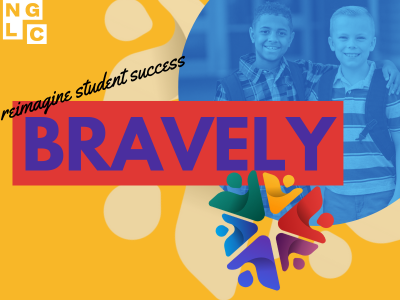Designing for Equity
The Importance of Universal Design for Learning
Topics

Together, educators are doing the reimagining and reinvention work necessary to make true educational equity possible. Student-centered learning advances equity when it values social and emotional growth alongside academic achievement, takes a cultural lens on strengths and competencies, and equips students with the power and skills to address injustice in their schools and communities.
Outstanding architecture stems from thoughtful planning, and the same can be said of engaging academic courses.
Imagine that you’re a well-known architect. Your latest project is a high-profile one: designing a new multi-story public museum that will house one-of-a-kind exhibits and priceless treasures.
You already know that building accessibility into the design must take place upfront. Retrofitting a space to meet the needs of all visitors simply wouldn’t make sense--and from a cost perspective, you’d be driving up the budget unnecessarily. The museum’s opening would likely be delayed. Worst of all, your actions would send the message that meeting all visitors’ needs wasn’t a top priority.
Thankfully, none of that transpired, since you incorporated principles of universal design from the very beginning.
In Support of Accessibility
Outstanding architecture stems from thoughtful planning, and the same can be said of engaging academic courses. Those that are well designed not only meet compliance standards, but their inclusive nature spurs student engagement and retention, and accommodates all styles of learners. In order to get there, faculty members and instructional designers take various factors into consideration in the design of a course, including available educational technologies, pedagogical approaches, classroom layouts and activities.
Institutions of higher education are earmarking resources for universal design, noting that the holistic approach often boosts the performance of all students. Indeed, a broad cross-section of colleges and universities consider it to be a key issue.
With over 350 member institutions spanning a variety of Carnegie classifications, states, and a number of countries, ELI is the hub of a very robust teaching and learning community. For this reason, ELI annually seeks input on trending key issues in postsecondary teaching and learning. The selected issues then serve as the framework, or focal points, for organizational discussions and programming throughout the coming year. More than 900 community members voted on the 2016 key issues, with ‘Accessibility and Universal Design for Learning’ coming in at #7.
Resources with Actionable Insights
The downloadable ELI Key Issues infographic describes Accessibility and Universal Design for Learning as follows: Putting the focus on faculty development, student literacy and universal access makes learner expression a priority.
In addition, ELI has produced several resources on the topic:
- The recent brief 7 Things You Should Know About Universal Design for Learning details the what the Universal Design framework is all about, where the trend is heading in higher education, and why it matters to teaching and learning.
- A Universal Design for Learning webinar led by an instructional designer and research scientist from CAST, Inc., who offered insights on how faculty members can accommodate a diverse student body—including those with various physical, sensory, and learning disabilities, differing cultural and linguistic backgrounds, and varied learning preferences.
- On November 7, ELI members can attend a webinar titled Accessibility Support Model: How a Large University Supports Diverse Learners Taking Online Courses. Led by Nancy Swenson, instructional designer at the University of Central Florida, the webinar examines UCF’s scalable and systematic approach to creating accessible online courses.
How is your institution approaching universal design for learning? Please share best practices and lessons learned with our community.




